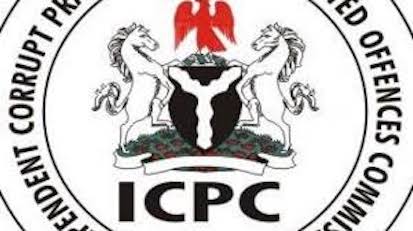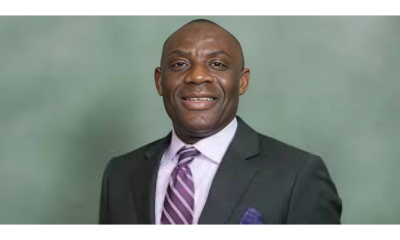FEATURES
Oil and Gas: What Lessons for Nigeria from Russia?

With over 200 trillion cubic feet (tcf) Nigeria has the largest gas reserves in Africa. It is ranked 9th globally.
Given our high dependence on oil and gas for industrial and domestic energy the global transition from carbon fuel to sustainable energy sources poses a significant threat to Nigeria’s economy.
Most African countries, including Nigeria, are still facing energy availability problems as their energy consumption is several times below the world’s average.
Experts estimate that Africa will account for over 60 per cent of global population growth by 2050.
In view of urbanisation experts forecast that Africa will experience significant economic growth to be accompanied by two-fold increase in natural gas demand.
Nigeria, Africa’s largest Liquefied Natural Gas (LNG) exporter lacks access to energy and since gas is the energy transition fuel, it is only logical that its development, availability and utilisation be enhanced.
Natural gas offers effective solutions to major areas of activities causing air pollution, including power generation, transport and household applications.
It can replace coal in power generation and oil products in transport; as for household applications, natural gas substitute Biomass (firewood) which according to experts account for up to 45 per cent of Africa’s energy mix
Apart from being used for cooking, transportation (in vehicles), heating and powering machines, industries among others, the gas is also a valuable raw material for the production of fertilisers.
A trip to Russia by the News Agency of Nigeria (NAN) on the invitation of its state-owned, Gazprom Energy Company revealed that partnering and emulating Russian Gas Projects and Gazprom’s competencies along the entire value chain of gas business is paramount for Nigeria’s gas development.
Russia has the largest proven natural gas reserves in the world, worth 47.8 trillion standard cubic meters. Iran and Qatar follow, with more than 30 and 20 trillion cubic meters.
Gazprom, its state-owned energy corporation, established in 1971 with sales of over 120 billion dollars is ranked as the largest natural gas company in the world and the largest company in Russia by revenue.
NAN discovered that the company operates many active oil, gas and condensate fields with cluster of producing gas wells, comprehensive gas treatment unit, booster compressor station, and transportation and power infrastructure.
Gazprom is the main supplier of natural gas to the country and to other countries. Under its Gas Infrastructure Expansion and Unified Gas Supply System, gas is supplied to millions of households and public utility enterprises.
The Russian government is also committed to its All-Russia Gasification Programme which started in 1960 and had promoted clean energy and energy security till date, according to Mr Buzin Vyacheslav, Diretor-General, JSC, Gazprom Distribution.
Vyacheslav said the total length of Gazprom’s Gas Distribution Networks transmitting gas to end consumers was more than 800,000 kilometres.
“To make clean energy widely available to Russians, Gazprom is actively bringing gas to cities and villages, by building gas pipelines stretching from major gas trunk lines to the land plots of consumers.
“Gas infrastructure expansion is the most ambitious socially significant project of Gazprom that helps improve the living standards of people and the main benefits of pipeline natural gas are convenience of use, eco-friendliness –reliability and cost efficiency.
“Uninterrupted delivery and safety are the main principles of Gazprom as regards gas supplies, both construction and operation of gas infrastructure facilities are performed in compliance with stringent requirements.
“Pipeline natural gas is the cheapest energy source available in Russia today. For instance, gas prices for the population are regulated by the government which makes them as affordable for households as possible“, he said .
According to Vyacheslav, gas infrastructure expansion is a powerful driving force behind the development of regional economies.
“Owing to the access to pipeline gas, availability, larger tax payments; growth of employment and increase of living standards and better environmental conditions are achieved,’’ Vyacheslav told NAN.
He also said gas infrastructure is being expanded extensively across Russia, adding that by 2030, gas networks will be present in all places of Russia where it is technically possible.
Vyacheslav said for Nigeria to achieve gasification, technical and technological designs are involved to ascertain the cost.
He said it would also involve geological survey to identify rocky areas which might not be penetrated hence other options could be applied.
The energy company had expressed readiness to partner African countries, including Nigeria on gas technology, infrastructure and development, according to Dobycha Nadym, Mr Dimitry Stratov, its Deputy-Director General, Prospective and Development.
Prof. Stanley Onwukwe, an Oil and Gas Expert, said it was unfortunate that Nigeria had the resources and projects like the National Gas Development Strategy, Trans Sahara Gas Pipeline Project among others which were yet to be fully harnessed.
Onwukwe said Russia was proactive and had supplies gas to almost all the western world.
Onwukwe, a professor in the department of petroleum engineering, Federal University of Technology Owerri, said there were blueprints established for gas developmental projects to thrive in the country but lack of political will hampered such projects.
“Nigeria has Compressed Natural Gas (CNG) already being used in Benin, most cars in the state are running on CNG.
“Initially the conversion of vehicles was free but they later started collecting almost a million naira which put people off.
“Such should be replicated nationwide while CNG refill stations should be established in various places for refilling but no such thing.
“The problem is not to have your vehicle’s engine converted for natural gas use but to see where to refill if you are on transit.
“It is a global village; just that the government does not have will power to implement such developmental projects after contract award,’’ he said.
He said the facility including gas base infrastructure for industries were necessary for distribution of gas but required proper investment and finance.
Dr Chijioke Ekechukwu, an economist said it would take a strong political will and implementable policies for Nigeria to attain such feat as Russia including having all our vehicles converted to CNG.
According to Ekechukwu, piping gas to homes is also possible if the supply is guaranteed.
He said it would be win-win to have policies in place towards achieving this, especially the fact that we have an abundance of gas.
“Only recently, the Nigerian government inaugurated a committee to convert cars and buses from petrol and diesel to CNG engine that can be used by these vehicles.
“We have an abundance of this gas, which is flared and wasted. Gas consumption both at home and by vehicles is climate friendly and should be encouraged,’’ said.
Also speaking, Mr Yusha’u Aliyu said Russia and EU have an excellent working policy on energy production and consumption, saying that technological advances also added value to their efforts.
“Gas is cost effective and environmental friendly. We have to develop a strategy and culture of commitment and efficiency to thrive,’’ he said. (NANFeatures)
FEATURES
What Future For Catholics Under Pope Leo XIV?
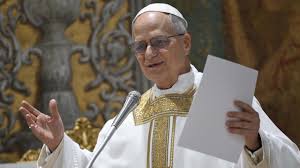
In unprecedented and emotionally resonant moments for the global Catholic community, Cardinal Robert Prevost of Chicago was elected Pope on May 8 and inaugurated on May 18.
He became Pope Leo XIV, the 267th successor to St. Peter and the first American-born pontiff in the history of the Roman Catholic Church.
The election of Leo XIV follows the death of Pope Francis on April 21, a pontiff celebrated as “the people’s pope.
”Leo XIV’s inauguration message resonated with advocacy for peace and harmony in a troubled world.
The pontiff said he wanted the Catholic Church to be a “small leaven of unity” in a time of “too much discord and too many wounds”.
Leo harped on the need to preserve the church’s rich heritage while confronting modern challenges.
“In this time of ours, we still see too much discord, too many wounds caused by hatred, violence, prejudice, the fear of difference, and an economic paradigm that exploits the earth’s resources and marginalises the poorest.
“For our part, we want to be a small leaven of unity, communion and fraternity within the world; we want to say to the world, with humility and joy; look to Christ; come closer to him,” he said.
Born on Sept. 14, 1955 in Chicago, Leo XIV was raised in a culturally rich American city and studied mathematics at Villanova University.
He pursued his priestly formation at the Catholic Theological Union in Chicago before obtaining a doctorate in Canon Law from the Pontifical College of St. Thomas Aquinas in Rome.
It was not his academic accolades but the 14 years he spent as a missionary in Peru that most deeply shaped his pastoral identity.
There, in one of South America’s poorest regions, he worked closely with the marginalised, gaining firsthand insight into social injustice, poverty, and spiritual hunger.
This lived experience grounded his commitment to the poor, informed his theology of proximity, and laid the foundation for a papacy rooted in social justice, humility, and global outreach.
Leo XIV’s choice of name is more than ceremonial; it is a carefully calibrated message.
His name honours two great figures in Church history: St. Leo the Great, a fifth-century pope renowned for his doctrinal clarity and steadfast defense of Rome during political and theological turmoil.
It also honours Pope Leo XIII, whose groundbreaking 1891 encyclical Rerum Novarum addressed the plight of workers during the industrial age and laid the foundation for modern Catholic social teaching.
Prof. Brandon Gallaher of the University of Exeter, UK, likened Leo XIV to Francis, whose legacy of inclusivity, environmental stewardship, and concern for the Global South continues to inspire.
“Many analysts believe Leo XIV was chosen as a ‘continuity candidate,’ meant to solidify and institutionalise Francis’s reforms.
“Leo XIV is very much a ‘Francis-like’ pontiff.
“He shares Francis’s concern for the peripheries and the poor, but he also brings a more canonically grounded and disciplined approach to Church governance,” he said.
According to Dr Gonzalo Berenguer, a historian from the University of Bristol, his name, background, and tone all signal a commitment to build on, not reverse, Francis’s revolution in Church life.
Catholic scholars say Leo XIV assumes the papal reins at a moment of significant turbulence for both the Church and the world.
They listed some of the church’s pressing challenges as: Internal Reform and Transparency; ongoing fallout from clergy abuse scandals has damaged the Church’s moral authority; strengthening accountability will be a key focus.
“Social Justice: Poverty, migration, and economic disparity remain core global issues; Leo XIV’s Peruvian experience positions him to speak credibly on these matters.
“Climate Change and Environment: Continuing the legacy of Laudato Si’, Leo XIV is expected to advocate forcefully for ecological stewardship.
“Inclusivity and Youth Engagement: The new pontiff has expressed interest in creating space for women, youth, and marginalised voices within Church structures and discussions.
“Global Engagement: As digital communication reshapes culture, Leo XIV must navigate a path that keeps Catholic teaching relevant and accessible without compromising doctrine.”
The Christian Association of Nigeria (CAN) described Leo XIV’s election as “a milestone of hope and renewal”.
President Bola Tinubu, who attended Leo XIV’s inauguration, lauded the pope’s global perspective and experience with Nigeria’s Augustinian communities, calling Leo XIV’s elevation “a new chapter for Church-African cooperation.”
UN Secretary-General António Guterres hailed Leo XIV as a voice for unity and peace.
“At a time of geopolitical division and deep societal fractures, Leo XIV brings a message the world needs to hear,” he said.
Mr Peter Obi, former Anambra Governor and Labour Party Presidential candidate in 2023, who also attended the inauguration, called the new pope “a respected canon lawyer and seasoned missionary,” highlighting his role as Prefect of the Dicastery for Bishops before becoming pontiff.
Analysts say Leo XIV’s duality of identity is more than symbolic as it informs his leadership style– humble, yet decisive, and his theology–rooted in Gospel fidelity but open to dialogue with the modern world.
Before the conclave, Leo XIV gained attention for his measured but clear social media presence, including posts critical of political leaders he believed misrepresented Christian teaching.
From Rome to Rio, Lagos to Abuja and Los Angeles, Catholics are watching closely; will Leo XIV be the builder of bridges?; the reformer with legal acumen?; the lion-hearted shepherd the Church needs?
The Tinubu Media Support Group (TMSG) described the personal invitation by Leo XIV to Tinubu to attend his inauguration as a reflection of Nigeria’s great stature in the comity of nations.
Mr Emeka Nwankpa, Chairman of TMSG, said that Tinubu was the first Nigerian president in recent memory to attend a papal inauguration.
“When the Presidency announced that Tinubu would attend the inauguration of Leo XIV, it mentioned that the papal invitation by Vatican Secretary of State Cardinal Pietro Parolin underscored the need for the President’s physical presence.
“For us, it represents the importance the Vatican accords the President and the country, especially as the inauguration ceremony was Pope Leo’s first interaction with world leaders.
“Indeed, the Pope had brief interactions with all international leaders in attendance, including Tinubu, U.S. Vice President J.D. Vance, and President Volodymyr Zelensky of Ukraine.”
According to Nwankpa, Tinubu’s presence at the Pope’s inauguration marks the first time in 20 years that a Nigerian leader attended a papal inauguration.
“In 2005, when Pope Benedict XVI was inaugurated, there is no record showing then-President Olusegun Obasanjo attended, though Nigeria had a delegation.
“When Pope Francis was inaugurated in March 2013, the Nigerian delegation was headed by then Senate President David Mark, who delivered former President Goodluck Jonathan’s congratulatory letter to the Pope.
“But Tinubu, a Muslim, not only accepted the papal invitation but attended and told newsmen his presence was consistent with achieving unity in diversity.”
The group said it was reassuring, especially as some Nigerian Christians had expressed reservations about peaceful coexistence and religious harmony following the President’s Muslim-Muslim ticket in the 2023 election.
“We note that during Tinubu’s meeting with members of the Catholic Bishops’ Conference of Nigeria, he reaffirmed his commitment to using ‘our diversity, not for adversity but for prosperity,” Nwankpa said.
He expressed hope that many more Nigerians would appreciate the President as a fair-minded leader, contrary to pre-election impressions promoted by the opposition.
Catholic pundits and critical observers say Leo XIV has become a symbol of hope and unity; but for many, the central question remains: What future lies ahead for Catholics under this historic American pontiff? (NAN)
FEATURES
Rise In Male Hair Braiding: Fashion or decline in African values?

In recent years, the landscape of men’s fashion and grooming in Nigeria has seen a notable shift, with hair braiding emerging as a significant trend among young men.
Once seen as a style reserved for women, braided hairstyles are now redefining masculinity on the streets of Nigeria.
The practice has now evolved into a form of cultural expression, artistry, and personal identity for Nigerian males.
This growing trend is not just about fashion; it challenges cultural stereotypes, sparks conversations about gender norms, and signals a broader shift in how young Nigerian men see themselves and their identities.
Speaking on the trend, contributors appraised several factors contributing to the drift among young men in Nigeria society.
Mr Chinemerem Ndinojue, a youth and fashion enthusiast, described hair as a deep personal expression of identity.
“To me, hair is an extension of one’s personality; in African history, braids were more than fashion — they were symbols of resistance, identity, and even communication during the era of slavery.”
Ndinojue argued that, modern youths, particularly the Gen Z, use braids and other hairstyles to reflect creativity and stand out in industries like fashion and entertainment.
“Many of us are into music, design, content creation and our appearance is part of the brand; our parents rocked Afros in their time.
“It is the same expression in a different era; you cannot judge a person’s morality by their hairstyle,” he said.
However, Mr Michael Samson, a civil servant, sees the trend differently, describing it as a departure from African tradition and an influence of misguided westernisation.
“Our traditions have been replaced by modern civilisation; most of these boys are not celebrities; yet, they spend thousands on hair that serves no purpose.
“Worse still, some use these looks to cover fraudulent activities.’’
He cited an incident at a bank where a teenager, allegedly involved in internet fraud, claimed to have earned in a month what an older man earned in a lifetime.
“Such wealth without value is what leads to this arrogance; many use these styles to gain attention, not out of professionalism,” he said.
Echoing similar sentiments, Mrs Blessing John, another civil servant, said male hair braiding undermines cultural and moral standards.
“For me, it is not encouraging; we are Africans with strong cultural values; in our tradition, men do not braid their hair; even in professional spaces namely medicine, law, engineering, you do not see such hairstyles; there is a reason for that.”
She warned that many young men who braid their hair may be involved in societal ills such as drug abuse and cultism.
“We need value reorientation; parents must go back to teaching their children the right path; we must not forget where we come from,” she said.
Meanwhile, Mrs Ijeoma Azubuike-Okigbo, a communications professional, offered a more nuanced view.
While she admitted personal reservations about male braiding, she acknowledged the growing influence of pop culture.
“Young people today look up to personalities like VeryDarkMan among others who braid their hair and still command respect.
“If the society begins to accept it widely, it might one day become a part of our evolving culture.”
She said that many parents even took their young male children to salons for braids, suggesting the trend was already gaining ground across families.
“Ultimately, hair is natural; how one chooses to style it is personal; society is changing, and this may be part of that evolution,” she said.
Mr Toks Adesanya, a community elder, expressed strong disapproval over the rising trend of hair braiding and dreadlocks among young Nigerian males, describing the practice as a “taboo” and a deviation from cultural norms.
Adesanya lamented what he referred to as the erosion of African values and the shift in traditional masculinity.
He argued that hair braiding in men was not only alien to the culture but also reflective of a larger societal breakdown.
“It is a taboo for a man to braid his hair; when I see a boy or a man doing such things, I consider it a disgrace and a deviation from our tradition.
“Such hairstyles are not only culturally inappropriate but also expose young men to unnecessary suspicion by law enforcement.
“Thank God, the Special Anti-Robbery Squad of the Nigeria Police is no longer around; many young men would have fallen victim because such looks make them easy targets; police often associate such appearance with cybercrime or cultism.’’
Adesanya recalled a personal experience from his youth, when he briefly curled his hair to attend a party, only to be severely reprimanded by a family member.
“I felt accepted at the party, but when I got home, someone close to the family expressed deep disappointment; she said I had disgraced manhood; I felt ashamed and removed the curls the next day.”
He also attributed the trend to poor parenting, environmental influence, and a lack of religious and societal guidance.
“Our society no longer checks excesses; parents are absent, churches and mosques are silent, and this silence is taken as approval.
“Even in job interviews, appearances matter; a man with braids or dreadlocks may not be taken seriously if he should appear in such manner for job interviews,” he said.
Recently, Gov. Umar Bago of Niger banned wearing of dreadlocks among other things due to the rise of insecurity in the state.
Bago ordered security agents to clamp down on thugs and those abetting them in disrupting public peace in Minna, the state capital where violence had become a daily occurrence.
He also directed the arrest of people wearing dreadlocks, following a series of calls by terrorised residents of Minna to curb the worsening thuggery that had claimed the lives of many innocent people.
The governor said that thugs had turned the streets of Minna into a battleground since he took over leadership of the state.
As the debate continues, the question remains, is male hair braiding in Nigeria a fading of traditional values or an embrace of modern self-expression? (NANFeatures)
FEATURES
Miss Valdeen N. Pierre Honored with Humanitarian Award at the 2025 National Humanitarian Summit
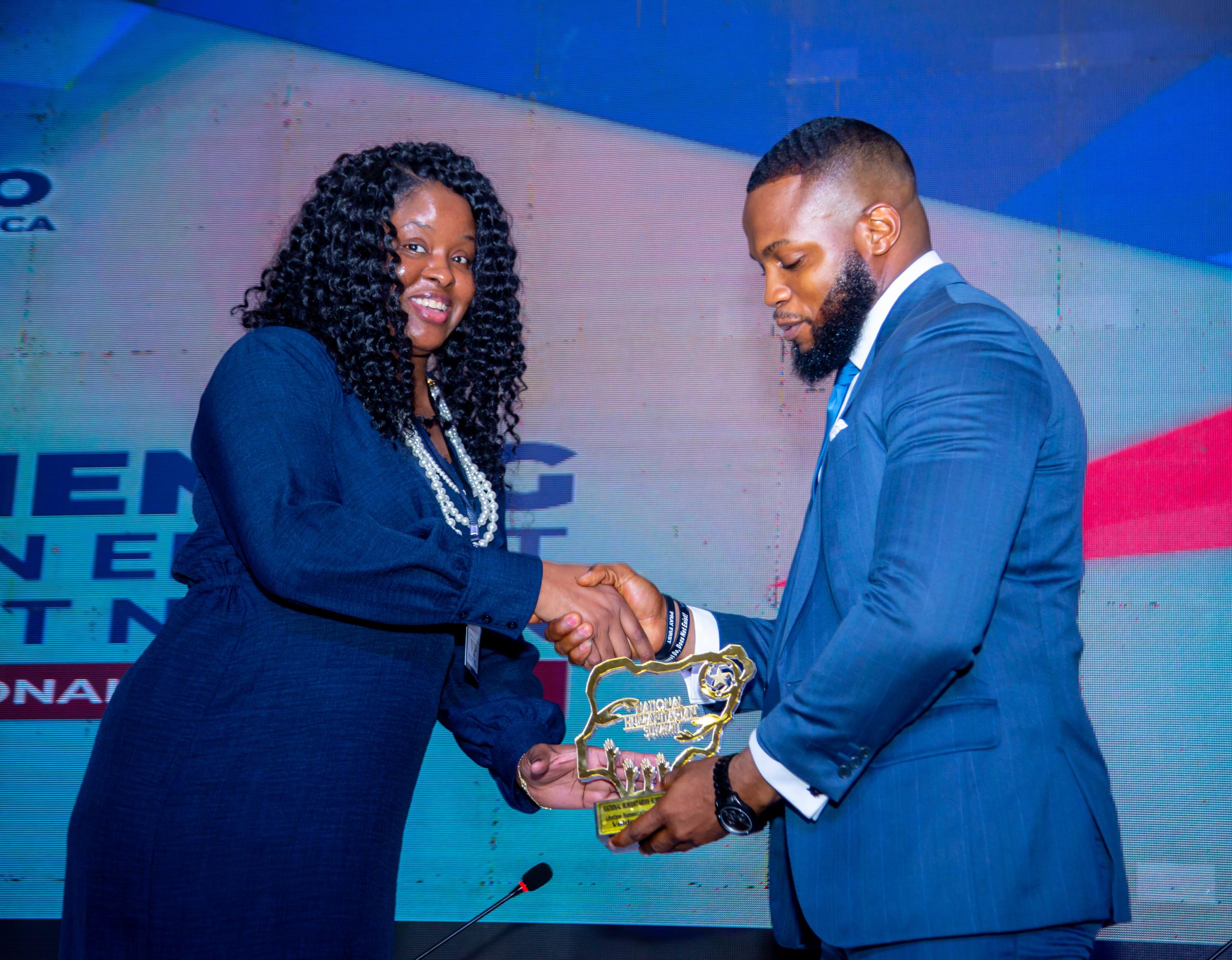
In a remarkable celebration of humanitarian service and strategic collaboration, Miss Valdeen Pierre , Country Director – United State ; A New Thing International foundation ; was honored with the Humanitarian Award at the prestigious National Humanitarian Summit 2025, held at the Shehu Musa Yar’Adua Centre, Abuja.
The award recognizes Miss Pierre’s and other humanitarian leaders unwavering commitment to humanitarian causes, particularly her collaboration with A New Thing International Foundation on the SOBE Project (School Outreach for Better Education) across Sokoto, Kebbi, Plateau, Niger States and the FCT.
Her efforts have significantly contributed to improving access to quality education and raising awareness about social vices among schoolchildren in underserved regions.The summit drew an esteemed audience comprising multiple stakeholders across the humanitarian value chain, including the Minister of Youth Development, Minister of Humanitarian Affairs, Special Assistant to the President on Humanitarian Affairs, the First Lady of Kwara State, First Lady of Zamfara State, representatives of United Nations Humanitarian Agencies, NGOs, INGOs, and other key players in the humanitarian sector.
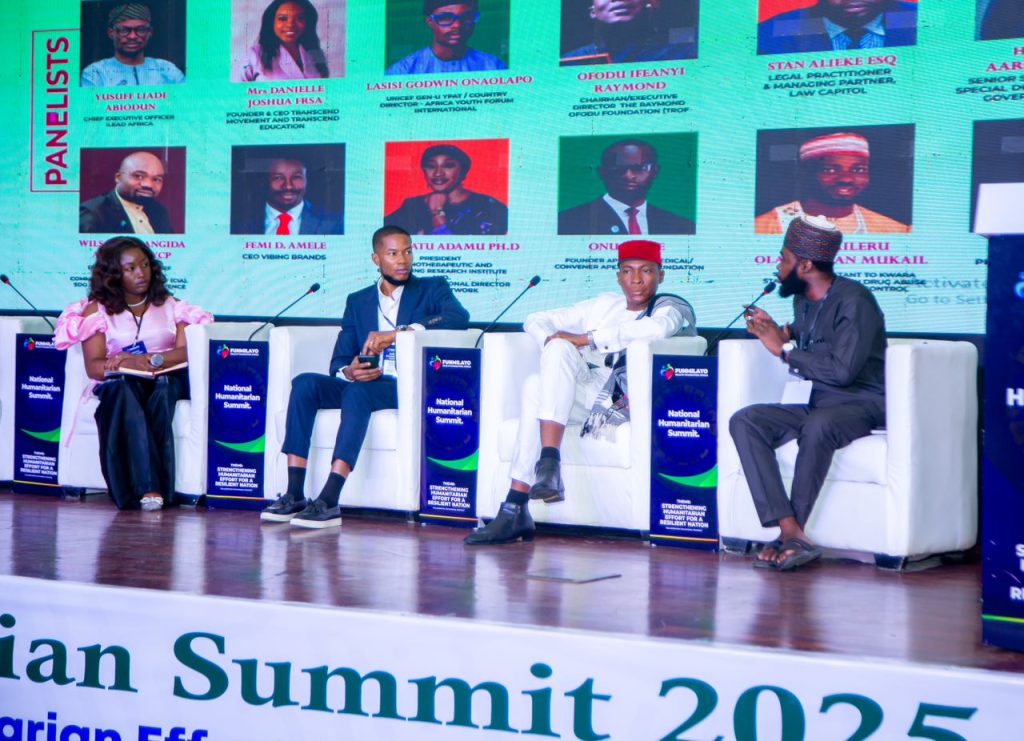
The event featured a vibrant mix of panel discussions, keynote addresses, and the unveiling of strategic development plans aimed at strengthening collaborative impact across Nigeria and beyond.
In his vote of thanks, Ambassador Kenneth Anetor, the Executive Director of A New Thing International Foundation and Chairman of the Planning Committee, delivered a passionate closing speech. He commended the honorees and stakeholders, issuing a clarion call for deeper collaboration and renewed commitment to advancing strategic organizational development goals. His rousing remarks inspired attendees to rise to the moment and forge stronger partnerships for sustainable impact.
Ambassador Anetor also extended profound appreciation to the summit’s convener, Ambassador Michael Timothy, of the Funmilayo Health Foundation Africa, for the opportunity to serve as Chairman of the Planning Committee, and for creating a platform that celebrates excellence in service and drives transformative conversations in humanitarian work.
The National Humanitarian Summit 2025 stands as a milestone in Nigeria’s journey toward inclusive, people-centered development, with Miss Valdeen Pierre’s recognition serving as a beacon of hope and an example of the power of global partnership in humanitarian efforts.
For media inquiries , information, or donations please contact:
Email: anewthingworldwide@gmail.com
Phone: +2347037474611
Website: www.antworldwide@gmail.com



